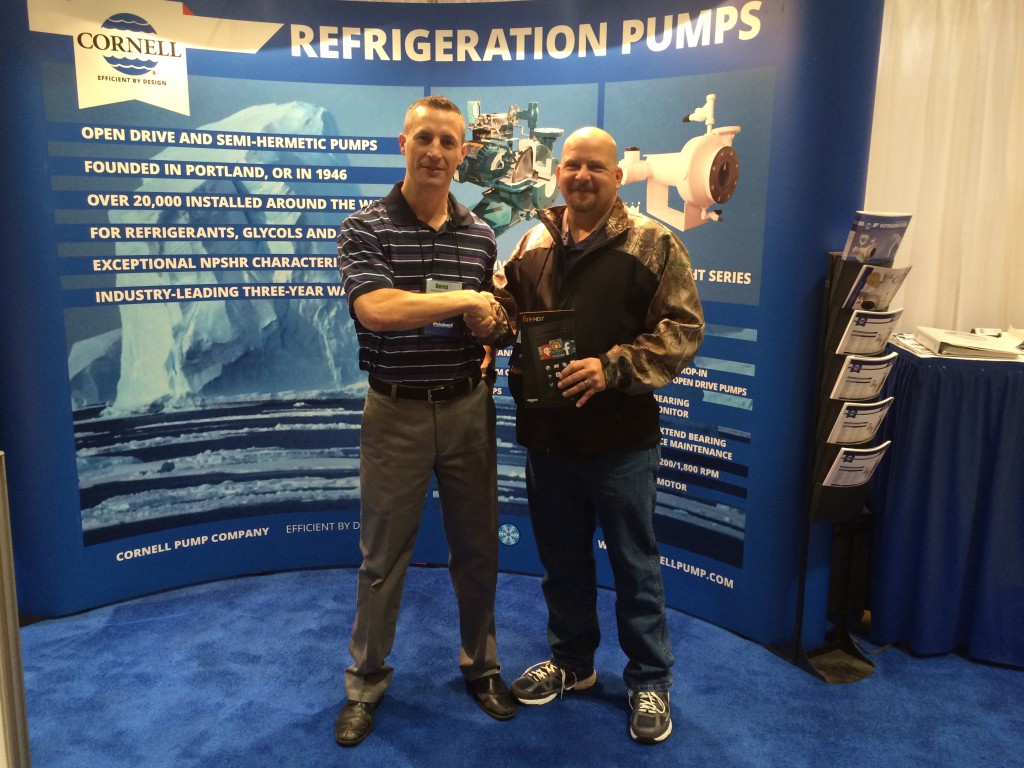Visit Cornell at World Ag Expo

Cornell is excited to exhibit at the World Agricultural Expo, in Tulare, California. The show is open from Tuesday, February 9, through Thursday, February 11, 2016. The 49th Annual World Ag Expo features vendors and attendees from around the world, gathered to learn about the latest in farming practices, agricultural equipment, and livestock handling techniques. […]
Cornell Announces New Pump-Flo Connect!
Selecting Cornell pumps with Pump-Flo, just got easier, with more options! Cornell Pump Company has utilized Pump-Flo, a pump selection program, for years. The latest iteration offers many great new features to users, including: Operating Point Reporting Based on Intersection of System Resistance Curve and Selected Performance Curve – Updated reporting shows the head and […]
RETA members tour Cornell Pump

Cornell Pump hosted the Will H. Knox Chapter of Refrigeration Engineers and Technicians Association (RETA) meeting on Monday, January 18, 2016. More than 25 attendees toured Cornell Pump, examined at our Arctic King and CB Open Drive refrigeration pumps, and posed installation questions to pump assemblers and inside sales staff. More than 6,000 individuals and companies […]
Cornell Pump School goes to El Paso

Cornell staff providing pump training to more than 80 participants in El Paso. Slurry, mining, municipal, and cutter products were covered extensively. If you’re interested in lunch and learns or trainings, please let us know. We thank Clowe & Cowan for their gracious hospitality.
Cornell Gives Away Amazon Fire HD Tablet at RETA

Derek Petersen, Cornell Pump industrial manager presents an Amazon Fire HD tablet to Scott Boleyn, of Ace Refrigeration. Attendees at the RETA show just concluded in Milwaukee could enter to win by stopping at the Cornell booth. Cornell showed our innovative Arctic King series and our robust CB series of refrigeration pumps. Learn more about […]
Cornell History
The story of Cornell starts in 1946 when 5 people working at Pacific Pump Company decided to head out on their own. Having a complete service department, they became familiar with what most of the common pump failures were. Many motor failures came from pressure spikes during operation, overloading capacity and water related failures of the pump end motor bearings. With many parts in stock and facilities to fabricate the rest, Cornell would service any model of pump.
